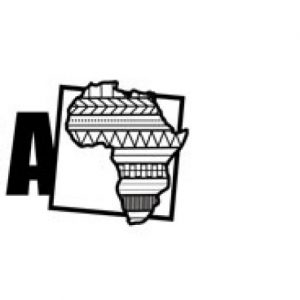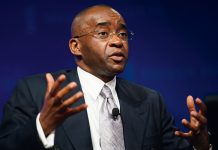Many people think that the MDC was formed in 1999. This is not correct. So my starting point is to recall the role played by the labour movement, the Constitutional and Student Movements in the birth of the MDC. I start with the role played by the Labour Movement.
At independence in 1980 labour was organized along racial lines. White artisans had their own unions while blue collar workers formed theirs. Mugabe’s government took the position that a strong labour federation would effectively represent workers and champion their causes. Kumbirai Kangai was the first black Minister of Labour. So in 1981 government facilitated the formation Zimbabwe Congress of Trade Unions as the umbrella body of trade unions in Zimbabwe thereby abolishing the colonial dual system.
However it meant that the labour movement became a poodle of government. Government imposed Albert Mugabe as the Secretary General followed by Ishmael Nedziwe until the 1988 Congress in Gweru which saw Morgan Tsvangirai elected as the ZCTU Secretary General. Tsvangirai came from the Mine Workers Union. Previously he had worked at Trojan Mine in Bindura. MT transformed the ZCTU and institutionalized. He opened offices at Pockets Building along Jason Moyo Avenue.
At first ZCTU had two departments ie Education and Organizing departments with a skeletal staff comprised of Dr Godfrey Kanyenze, sisi Viola, Sekuru Giriya and Chirebvu the book keeper. Later on Edith Munyaka joined as MT’s Secretary. MT set the ZCTU apart and cut the umbilical cord with government.
Later on ZCTU established the Health and Safety Department headed by Dr Rene Loewensen and Isaac Mudyandaruva, The Economics Dept was started by Dr Godfrey Kanyenze who was joined later by David Mutsvangwa and Dr Tapiwa Mashakada. The Women’s Department was head by amai Miriro Pswarayi and Kondo headed the Education department and was joined by Makonese. During this period ZCTU followed the Marxist-Lenninist doctrine so we used to address ourselves as comrades and we worked closely with Communist countries such as the Soviet Union, Bulgaria, Hungary, Czchekoslovakia, Poland, Romania, GDR (east Germany). To show this link ZCTU received material to build a labour college from Romania under Nicolei Ceaceascu.
In 19888 MT had a baptism of fire. He had issued a statement condemning govt for its heavy handedness when it used brutal force to crash the UZ student demos led by Arthur Mutambara, Tendai Biti and Munyaradzi Gwisai. MT was abducted and taken to Gorononzi police station.He stayed there for a month.He was only released after the intervention of Mike Bimha the former Minister of Industry and Trade.
During this same period Gibson Sibanda from the Railways Workers Union became the ZCTU President and they made a wonderful combination with MT. ZCTU went on a collision course with gvt by criticising policies and laws that hurt workers.In 1992 ZCTU embarked on a strike against amendments to the Labour Relations Act. The strike was declared illegal. Tendai Biti represented the Labour Centre in all court challenges.
Fast forward in 1997 ZCTU organized a Mass Action and the whole country was shutdown with looting in Mabvuku and Chitungwiza. Between 1991 and 1996 ZCTU opposed the economic structural adjustment Program (ESAP) which led to retrenchments and cut back in social spending. The ZCTU became a force to reckon with. Mugabe’s response was to challenge the ZCTU to form a political party instead of using workers to expose government.
In 1998 the ZCTU started a country wide consultation gathering raw data on the way forward in view of government intransigence. Denis Murira, Ghandi Mudzingwa, Timothy Kondo, James Makore,Esaph Mdlongwa, Nomore Sibanda and others were in charge of the raw data. In the process they engaged a rural women’s organization called Orap which was led by Sithembiso Nyoni who is the current government Minister responsible for SMEs. The result of the raw data was the National Working Peoples Convention of Feb 1998 which took place at the Women’s Bureau in Hillside. The Convention to discuss the socio-economic crisis.
I must conclude this part by acknowledging the roles played by trade union activists, students and academics during these formative years. These included Nicholas Mudzengerere, Paurina Mpariwa, Thokozani Khupe, Gregory Peta, Gift Chibatwa, Japhet Moyo, Cephas Makuyana, Mago, Chimombe, Komichi, Gwiyo, Shambare, Chibebe, Ngirandi, Gwenzi, Chifamba, Mlambo, Amos chibaya, Mutengwa,Mushayabasa and other trade union activists to numerous to mention. Academics such as Prof Lloyd Sachikonye, Kempton Makamure, Shepherd Nzombe, Shadreck Guto, and Manase.
Students who need to b mentioned include Arthur Mutambara, Munyaradzi Gwisai, Tendai Biti, Nelson Chamisa, Tafadzwa Musekiwa, Learnmore Jongwe, Job Sikhala, Molokele, Giwa, Mbwembwe, Madhuku, Chaibva, Kagoro and others.
Part 2 will look at the role of students and NCA up to the National Working Peoples Convention.
Comments are most welcome.
Dr Tapiwa Mashakada is a former Government Minister and a current Legislator for Hatfield. He is one of the Movement for Democratic Change Senior Officials.












